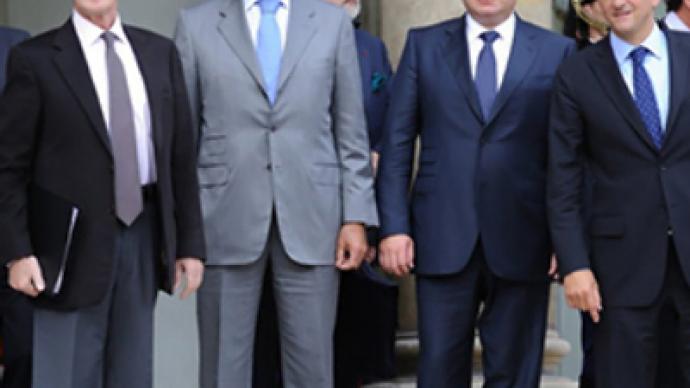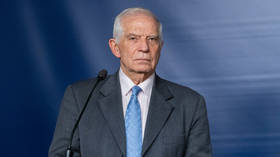Sextet on Iran may review its stance – Lavrov

Russian Foreign Minister Sergey Lavrov accepts that the “5+1” group – made up of the five permanent UN security Council members and Germany - may reconsider its proposals on the settlement of the Iranian nuclear issue.
“The sextet position – based on which we have been contacting the Iranian side – was agreed over three years ago,” Sergey Lavrov said, cites RIA Novosti. Therefore, as part of preparation for a new round of talks, it would not be out of place to “look at the document once again and see whether it adequately reflects today’s realities.”
The statement was made in Paris, where Sergey Lavrov and Russia’s Defense Minister Anatoly Serdyukov are taking part in the ninth session of the Russian-French council on security co-operation.
The so called 2+2 talks between the two nations’ ministers focused on strengthening of the stability on the European continent as well as on specific issues such as the Middle East peace talks, Moscow-NATO relations and the missile defense.S-300 missiles in Abkhazia – no threat to anyone
Following the meeting, French Foreign Minister Bernard Kouchner commented on the announcement made last month over Russia’s deployment of its S-300 long range surface-to-air missile systems in Abkhazia.
"The S-300 is an air defense system and does not upset the balance of forces in the region," he told a media conference. "I cannot say that we rejoice at it, but it does not pose threat to anyone," Kouchner is quoted.
On August 11, the commander of the Russian Air Force, Colonel General Aleksandr Zelin said that Russia deployed S-300 missiles in Abkhazia to protect the airspace the republic and South Ossetia. The system can “prevent the violation of state borders in airspace and destroy any aircraft breaching the airspace of the covered territory, whatever their goals are,” he said.
The move sparked fierce criticism from Georgia who stated that it could threaten regional balance of forces.
The deployment is part of the military co-operation agreement between Russia and Abkhazia, which was signed in February 2010. Moscow has been granted land in Abkhazian territory for several military bases on a 49-year-long lease. The S-300 anti-aircraft unit is to defend one of the airfields, along with a number of short-range air defense troops.
Israeli-Palestinian talks won’t be easy, but chance is there
Last week, Israeli Prime Minister Benjamin Netanyahu and his Palestinian counterpart Mahmoud Abbas met in Washington for first direct talks in two years. Sergey Lavrov, speaking at a media conference in Paris, said that Russia welcomes the move. However, he admitted, that the process of negotiations will not be easy.
"We are keen to see the direct talks between Palestinians and Israeli lead to a result, but this will not be an easy thing to do," he said, as cited by Interfax agency.
According to the Minister, “differences exist on all the issues related to the creation of the Palestinian State and definition of its final status”. But, he added, the chance is still there.
Talks on Mistral purchase continue
The Russian officials have also met with the French President Nicholas Sarkozy at the Elysee palace where, among other things, they touched on the possible purchase of French Mistral-class amphibious assault ships. France and Russia have been mulling over the deal for several months and now, Lavrov said, “these negotiations are very intensive and … very specific." The negotiations also include the issue technology transfers."The position stated in Paris in early March has not changed," he assured, cites Interfax. Back in spring it was announced that the two countries had begun exclusive talks over the sale of four Mistral-class helicopter-carriers to Russia.
The French side is rather hopeful that the talks will be a success. "France will continue the negotiations with the Russian Federation with the hope of concluding the deal," the French presidential spokesman said on Tuesday, writes Itar-Tass. "President Sarkozy showed understanding of Russia's decision to hold an open tender."
Back in August, the Russian head of the Defense Ministry announced an international tender due to take place in September. The result will be announced before the end of 2010.
If the deal is finally sealed, it would mark the first time that a NATO country has sold military equipment to Russia.












